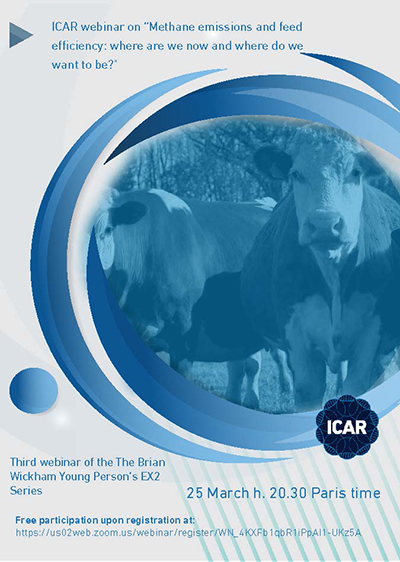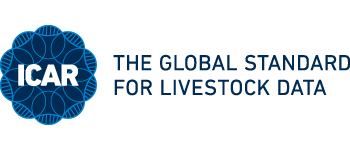On 25 march 2024 at h. 20.30 (Paris time) the third webinar of the Brian Wickham Young Person EX2 Series webinars was organised.
In the webinar, Caeli Richardson presented her experience in a speech entitled: “Methane emissions and feed efficiency: where are we now and where do we want to be?”.

For presenting the webinar, a specific brochure has been produced here
Methane emissions: A climate culprit
The third webinar of the BWYPEX EX2 Series, presented by Michael Whittaker (CIS, UK) focuses on “Methane emissions and feed efficiency”.
Methane (CH₄) is a potent greenhouse gas that significantly contributes to global warming. Here are some key points about methane emissions:
- Sources of Emissions:
- a. Natural Sources: These account for around 40% of total emissions. Wetlands, biomass burning, and geological seepage are examples.
- b. Anthropogenic Sources: Human activities contribute approximately 60% of total methane emissions. The largest anthropogenic source is agriculture.
- c. Agriculture’s Role: Livestock, particularly ruminants are significant methane emitters due to enteric fermentation (the digestive process in their stomachs).
- Improving Data Accuracy:
- Accurate measurement and reporting of methane emissions remain challenging.
Feed Efficiency: A Dual Solution
Let’s explore feed efficiency:
- Definition: Feed efficiency refers to how effectively animals convert their feed into useful products (e.g., milk, meat) while minimizing waste.
- Reducing Methane Emissions: Improving feed efficiency can directly impact methane emissions. Here’s how:
- Selective Breeding: Identifying and breeding animals with better feed efficiency traits can reduce methane production.
- Nutritional Strategies: Optimizing diets to enhance nutrient utilization can minimize methane emissions.
- Feed Additives: Some additives (e.g., tannins, fats) can reduce methane production in the rumen.
Where We Are Now:
- Researchers are studying genetic markers associated with feed efficiency.
- Nutritional interventions are being explored to mitigate methane emissions.
- Industry initiatives aim to promote sustainable practices.
Where We Want to Be:
- Precision Livestock Farming: Implementing technology to monitor individual animals’ feed efficiency and health.
- Integrated Approaches: Combining genetics, nutrition, and management strategies to achieve optimal feed efficiency.
- Global Collaboration: Strengthening research, policy, and industry efforts to reduce methane emissions while ensuring food security.
